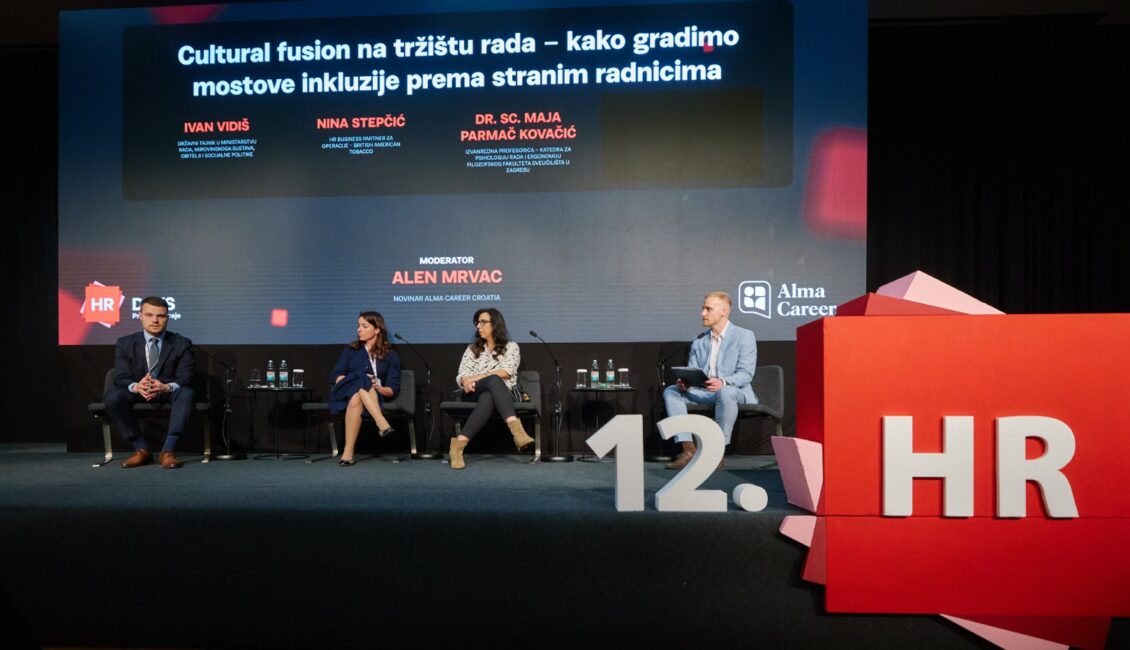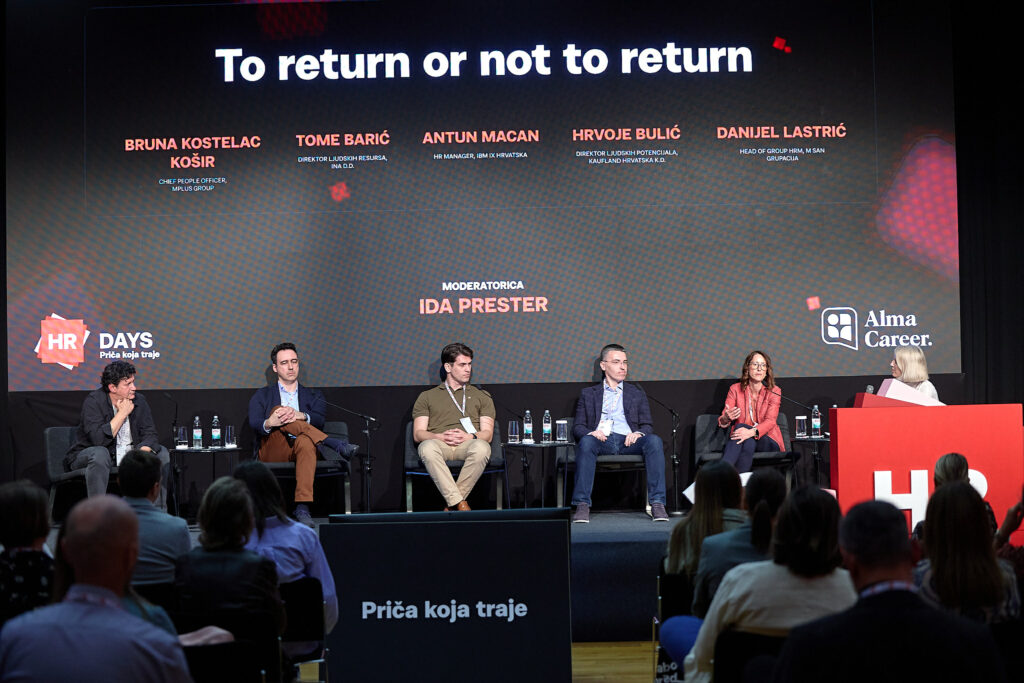
The 12th HR Days conference was held in Rovinj, the most significant and long-standing meeting of the regional HR community.
Inspiring lectures by world-renowned experts, round tables on current topics from the labor market, a record number of practical workshops and an unforgettable party marked this year's, and overall 12th edition of HR Days conference held in Rovinj.
The largest regional meeting of the HR community, organized by Alma Career group, which manages the MojPosao portal, gathered more than 600 HR professionals, transforming Rovinj into the HR capital of the world.
At this year's conference, the focus was on the latest trends in employment and topics such as managing low performers, retaining employees and the role of middle managers in the aforementioned process, the application of artificial intelligence in HR, equal pay for equal work, resilience methods, and many more.
Special attention was paid to hot topics of the domestic labor market, such as the inclusion of foreign workers and the issue of workers returning to the office after several years of working from home, i.e. the so-called hybrid work.
Foreign workers – an opportunity or a threat?
According to the latest unofficial estimates, Croatia lacks as many as 200,000 workers. Is the solution hidden in the import of foreign workers and how much do they actually help us, that is, do they slow down and threaten our labor market?
We discussed these and many other issues at the panel 'Cultural fusion on the labor market - how we build bridges of inclusion towards foreign workers', in the company of Ivan Vidiš, State Secretary of the Ministry of Labour, Pension System, Family and social policy, Ph.D.Maje Parmač Kovačić, associate professor at the Department of Work Psychology and Ergonomics, Faculty of Philosophy, University of Zagreb, and Nina Stepčić, HR Business Partner for operations at British American Tobacco.
At the very beginning, Dr. Parmač Kovačić introduced us to the data of the latest research that revealed to us what Croats think about foreign workers.
Most respondents agree that foreign workers should learn the Croatian language for easier communication and navigation. In addition, they agree that foreign workers should adapt to our customs and way of life and that for better integration they should socialize more with the resident population. On the other hand, 15 to 20% of domestic workers would not want to be 'the one' to help foreign workers adapt. As many as 50% of domestic workers believe that foreigners disrupt our culture and do not feel safe in their company. As for employment, 35% of respondents point out that foreign workers will steal our jobs, and only 11% believe that they should import more foreign workers.
"We all want foreign workers to fit into our society, to embrace our culture and respect our way of life, but when we delve a little deeper into this topic, we see that only a few of us are willing to participate in this process", emphasized Parmač Kovačić.
Without communication, there is no relationship, said State Secretary Ivan Vidiš.
“It is certainly important that they know the language. It is precisely for this reason that employers can provide education, i.e. a Croatian language course for foreign workers through the voucher system. By amending the Law on Foreigners, we will extend the duration of the work permit from one to three years, enable foreign workers to change jobs more easily, and we will control and punish employers who exploit foreign workers even more strictly. It is about a small number of companies that operate in this way, and we will punish them rigorously", he notes.
The British American Tobacco company has been employing workers from third countries for many years, Nina Stepčić points out."A quality onboarding program, open and transparent communication and an equal attitude towards all workers are necessary. Before their arrival in Croatia, we inform foreign workers in detail and clearly about the environment and culture they are coming to, so that their adaptation time is as short as possible. They get used to it very quickly and after just a few weeks they become almost completely independent. Both in the working environment itself and outside the business environment", said Stepčić.
Flexibility is the key, not the location
On the second day of the conference, at the panel "To return or not to return", we focused our attention on the advantages and disadvantages of returning workers to the office. The panel was attended by Tome Barić, HR Director of INA d.d., Antun Macan, HR manager of the digital agency IBM iX Croatia, Hrvoje Bulić, director of human resources of Kaufland Hrvatska, Danijel Lastrić, Head of Group HRM M SAN Grupacije and Bruna Kostelac Košir, Chief People Officer of Mplus Group.
The question of working from the office, that is, from home, is primarily a question of context, said Hrvoje Bulić from Kaufland.“Simply, due to the demands of work, some people are not and will not be able to do their work from the comfort of their own home. For example, workers in stores, that is, branches who are in daily contact with customers. Every company has its own rules and 'laws', and by joining that company you accept those rules. Of course, if in certain segments of the business there is the possibility of working remotely, that option should be made available to workers who want it, at least occasionally."

Bruna Kostelac Košir believes that, at the end of the day, our work boils down to whether we achieve the planned results.“I think that is what is important and what should be important. If you gave someone a task and he did it, it doesn't matter so much where he did it. It doesn't matter what environment you're in if you've achieved the goal you've been given", she explains.
According to Tomo Barić from INA, workers value freedom the most. "I am a person who likes to be with people and I always learn from them, that's why I like to go to the office. But I think that the possibility of staying at home, that is, the hybrid model of work, is a great thing because if you give people the freedom of choice, that's exactly what they're looking for and what they'll ultimately appreciate", Barić believes.
Danijel Lastrić from MSAN Group believes that today's employers are somewhat afraid of young employees who demand a lot. Working remotely is just one of the things on the list.“Younger generations ask questions and don't give up until they get answers. Most of the top people in the companies are not used to it and it is difficult for them to understand it."
One of the things that could soon also be on the 'table' during negotiations between workers and employers is a four-day work week."It is something that I absolutely welcome, I believe that shortening the working week would enable an even better balance between private and business life, but there are a lot of factors and processes that need to be harmonized earlier", believes Antun Macan from IBM iX.
This concluded the twelfth edition of the HR Days conference. We are scheduling the next meeting in exactly one year!





